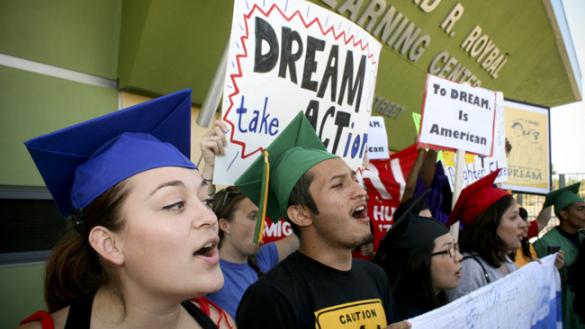The enforcement of immigration laws is a complex and hotly-debated topic. Learn more about the costs of immigration enforcement and the ways in which the U.S. can enforce our immigration laws humanely and in a manner that ensures due process.
Recent Features
The Dream Act would permanently protect certain immigrants who came to the United States as children but are vulnerable to deportation.

- Practice Advisories
This Practice Advisory discusses the impact of an interim rule repealing two former regulations which barred all “arriving aliens” from adjusting status if they are in removal proceedings.




